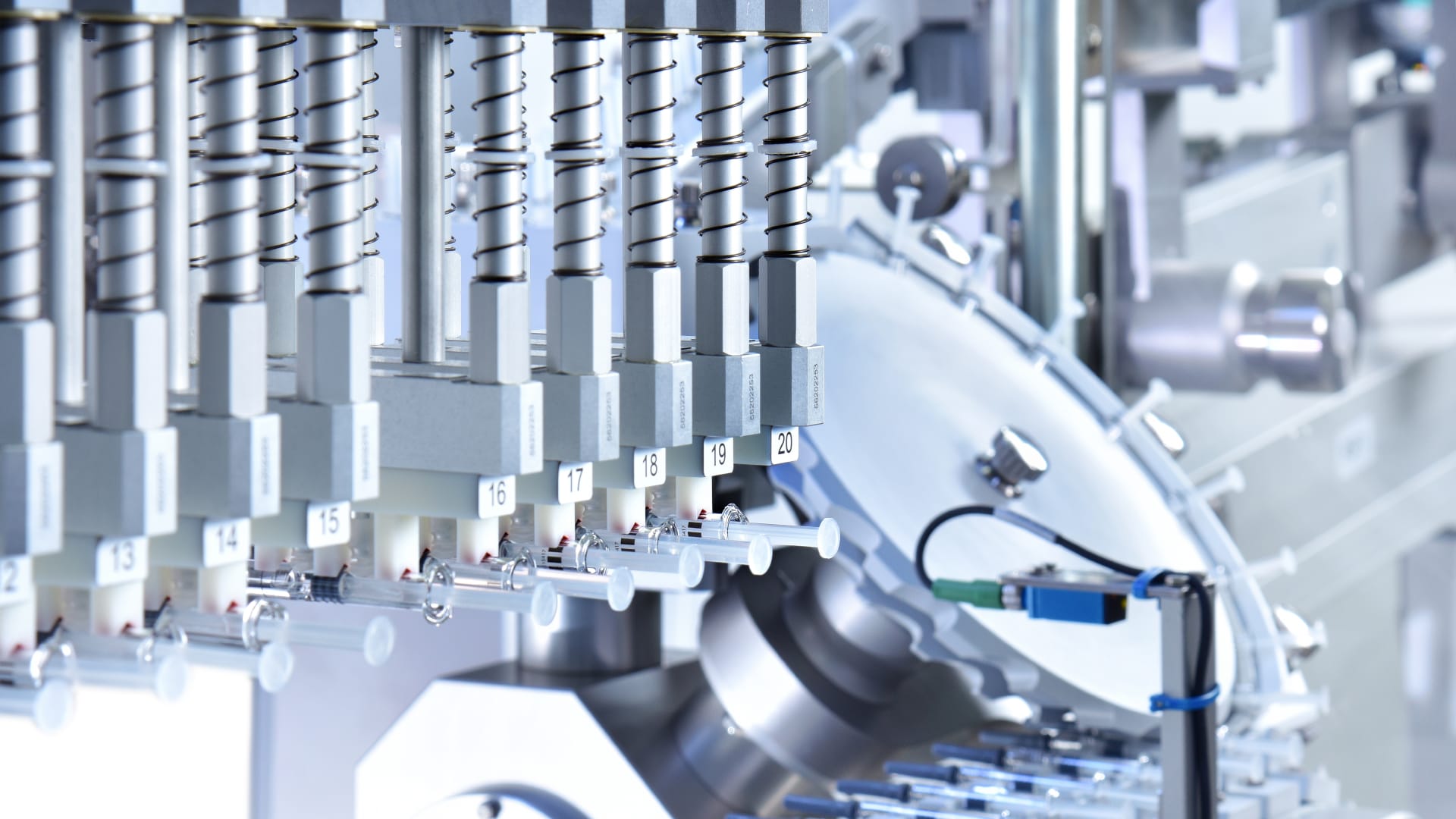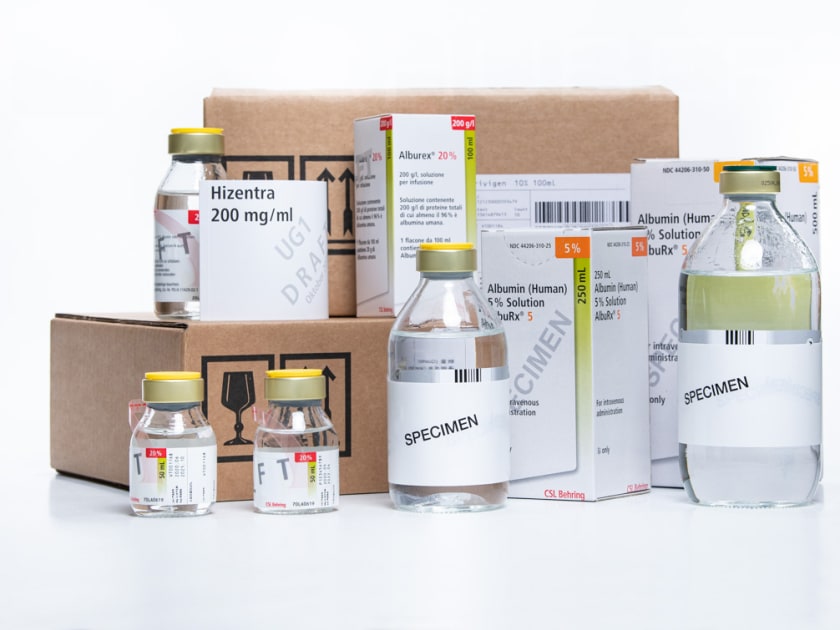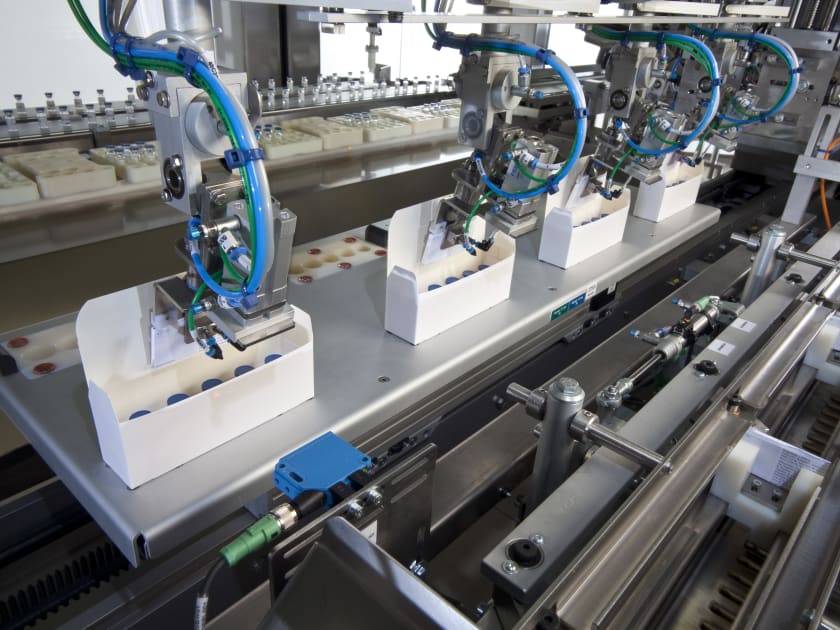400 syringes are reliably processed per minute:
When the flu season draws near, the vaccines, which are newly developed every year in response to the current mutations of the influenza virus, must be available in millions of vaccine doses within a very short time. In order to make the twice-yearly production of its flu vaccine faster and more reliable, a large, internationally active pharmaceutical company opted for a collaboration with Schubert-Pharma. With powerful star wheels and robotics, the packaging machine manufacturer’s infeed system enables high output with extremely gentle product handling.
The production process is required twice a year because the flu season occurs at different times of the year in the northern and southern hemispheres. Speed is of the essence in the production process: Due to the lead time required to adapt the vaccine to new strains of pathogens, there is not much time between the development of the appropriate compound and the emergence of the influenza wave. Moreover, the valuable vaccine doses are filled into various types of glass syringes, which requires a gentle packaging process to ensure that the sensitive glass containers are not damaged. This task was previously performed by pick & place robots, which packed five syringes lay in opposite directions in a tray via a bulk feeder. In addition to the high processing speed, the pharmaceutical manufacturer was especially interested in gentle product handling and the prevention of glass breakage – after all, the increased output could simply not result in a higher reject rate.







